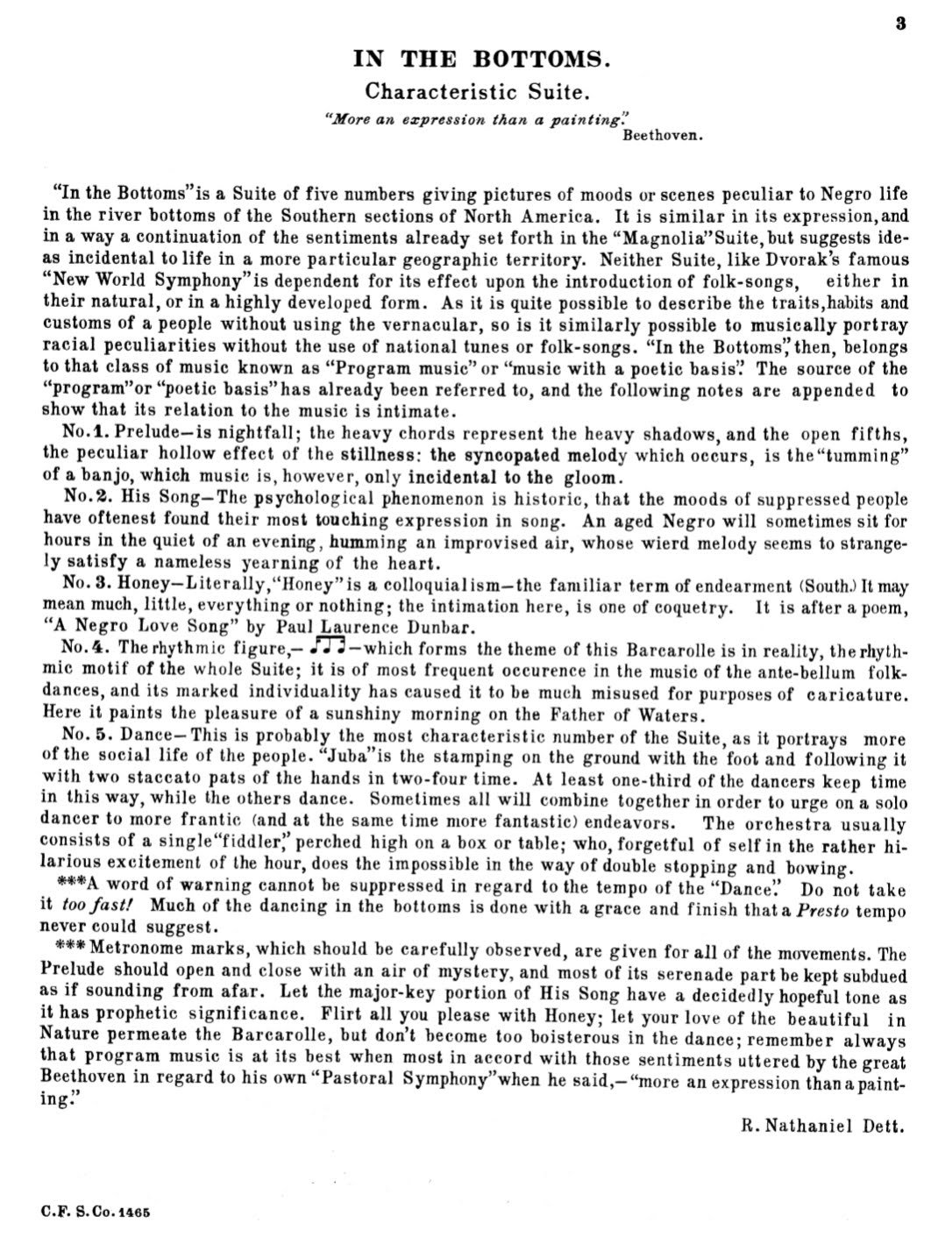Spiritual Medley No. 2, for tuba-euphonium quartet
Instrumentation: tuba euphonium quartet (euphonium 1-2, tuba 1-2)
Year Composed: 2020
Includes “I Want Jesus to Walk with Me,” “Sometimes I Feel Like a Motherless Child,” and “Steal Away”
Originally by “traditional”
Premiered August 2020 (virtual) by Black All-Star Tuba Euphonium Quartet. Premiered February 2022 (live) by Peabody Tuba-Euphonium Quartet.
Program Notes:
Spiritual Arrangement 2, written in summer 2020, incorporates three of my favorite spirituals: “I Want Jesus to Walk with Me,” “Sometimes I Feel Like a Motherless Child,” and “Steal Away.” Spirituals are songs created by African American slaves and passed down by rote. “I Want Jesus to Walk with Me” tells the story of the speaker crying out for the support of the Lord during difficult times. This arrangement opens up with a solo voice playing the melody over drones. As the melody continues, the accompaniment gets more active and supportive until all the voices end playing in octaves, symbolizing a level of camaraderie. “Sometimes I Feel Like a Motherless Child” is about the sorrow in being away from your home—the way the African American slaves were taken from their motherlands and often brought away from family through the American slave trade. This arrangement utilizes dissonance to convey the turmoil and the weight of the sadness. It ends with the tuba-euphonium pairs repeating the line “a long way from home.” The first uses extreme octaves between both instruments to present the distance between the speaker and their home, and the second uses closer octaves, ending on a unison, to present that there is no hope for a return home and they must accept where they are. “Steal Away” has an entirely different character from the first two songs. This song presents a story of the speaker “stealing away” to Jesus. While the story sounds as if it is more positive, finding “Jesus” and “home” can be viewed as symbolizing death. This arrangement captures the seemingly lighter character by using a blues style, but it ends by slowing down and fading to silence.
Adoration, for tuba-euphonium quartet
Instrumentation: tuba euphonium quartet (euphonium 1-2, tuba 1-2)
Year Composed: 2020
Duration: 3’
Originally composed for organ by Florence B. Price
Premiered May 2020 (virtual) by self multi-track video. Premiered October 2020 (live) by Arizona State Graduate Tuba-Euph Quartet.
Program Notes:
Adoration (1951) by Florence Price is a piece originally written for organ that I arranged for tuba-euphonium quartet, horn quartet, and brass quintet. This piece features a sweet melody reminiscent of truly adoring something and transports the listener to those fond memories. In the middle, there is a brief section with minor tonality that portrays the conflict that can sometimes occur in love, but the original melody returns as things will almost always resolve in the end.
In the Bottoms Suite, for tuba-euphonium octet
Instrumentation: tuba euphonium octet (euphonium 1-4, tuba 1-4)
Year Composed: 2020
Duration: 13’30”
Movements:
I. Prelude: Night
II. His Song
IV. Barcarolle: Morning
V. Dance: Juba
Originally composed for piano by R. Nathaniel Dett
Premiered June-August 2020 (virtual) by the COVID-19 Black All Star Ensemble. Premiered April 2021 (live) by Appalachian State Tuba-Euphonium Ensemble.
Program Notes:
When I heard this piece, I was fascinated by its orchestrational potential. The nearly complete suite transferred to tuba-euphonium ensemble quite well, given the versatility and range ability of the ensemble. In addition to Dett’s own program notes, I would like to highlight the following: The second movement utilizes some liberties in arranging rather than transcribing. The fourth movement is essentially a virtuosic solo-euphonium feature. At this time, I do not have an existing arrangement of movement 3 (Honey) but can arrange it if there is demand.
Lift Every Voice and Sing, for tuba-euphonium octet
Instrumentation: tuba euphonium octet (euphonium 1-4, tuba 1-4)
Year Composed: 2020
Duration: 3’
Premiered September 2020 (virtual) by the COVID-19 Black All-Star Ensemble
Program Notes:
Lift Every Voice and Sing is considered the American Black National Anthem. It was originally composed by J. Rosamond Johnson and the lyrics written by James Weldon Johnson. This arrangement was written as the finale for my COVID-19 Black All-Star Ensemble project during the summer of 2020 (June-October). In its virtual premiere, it featured over 25 Black tuba and euphonium players around the US. The arrangement includes elements of fanfare to set up the anthem and features different sections of the ensemble.
